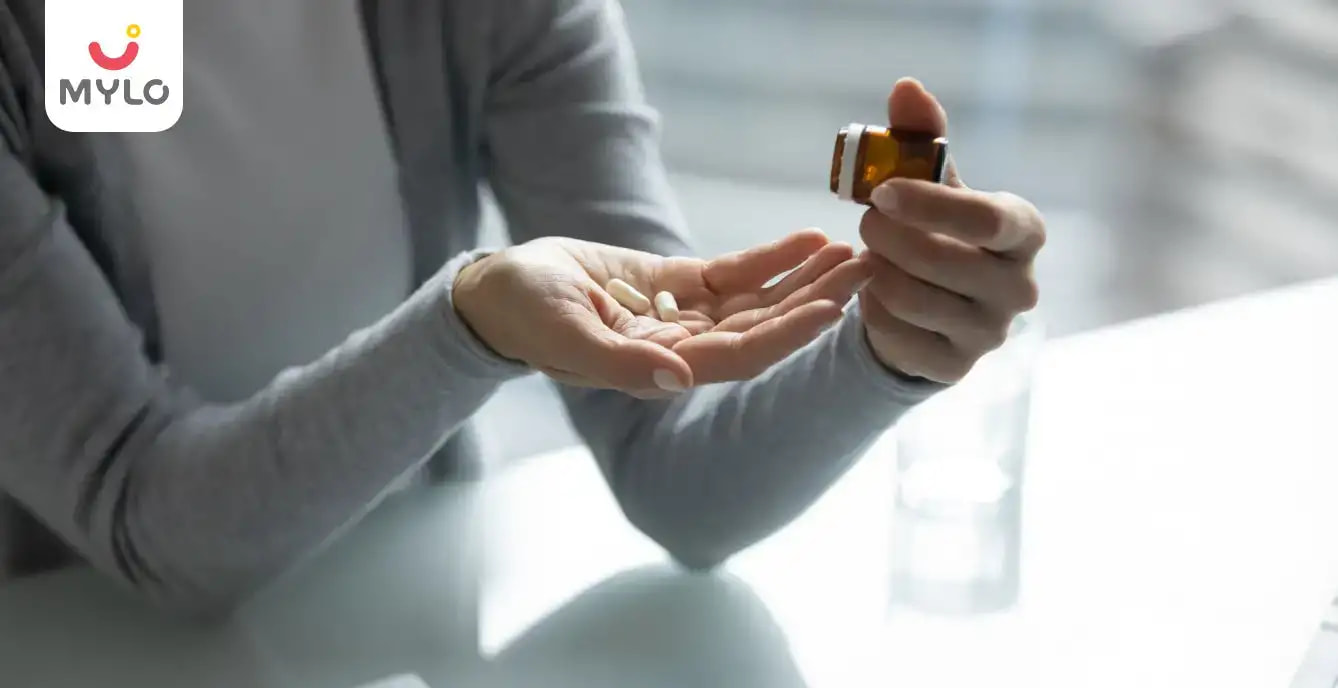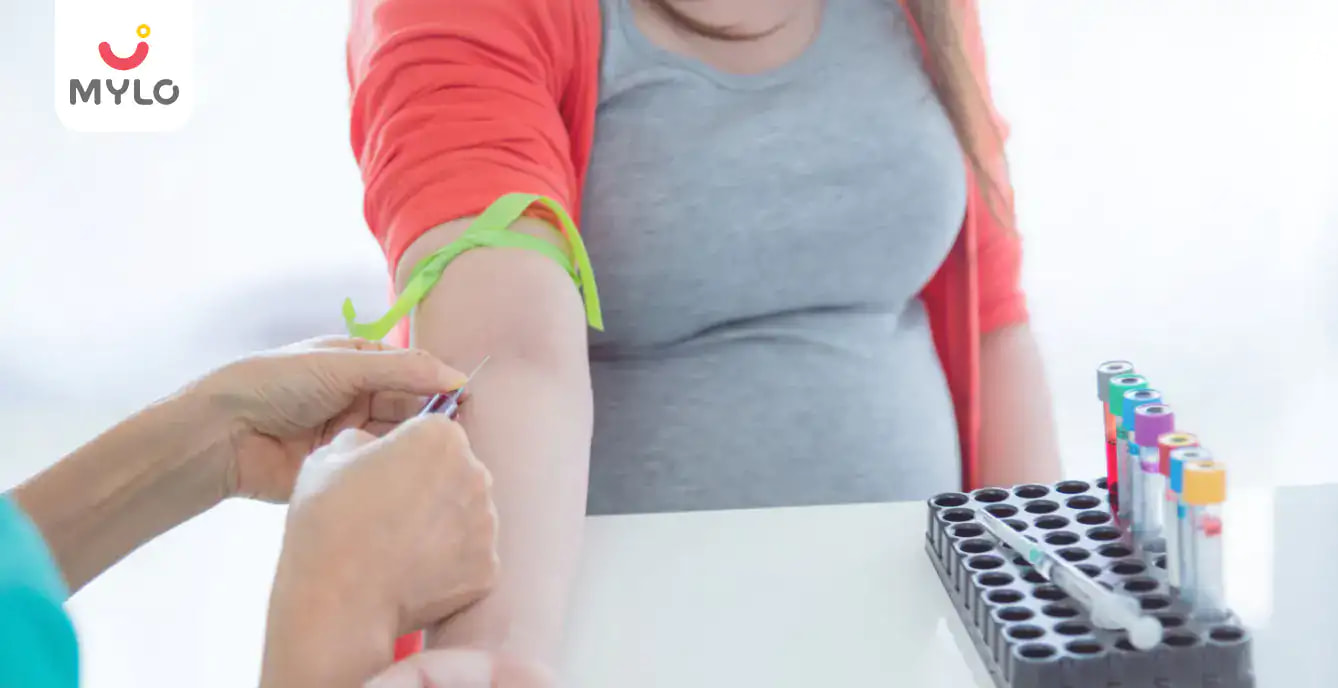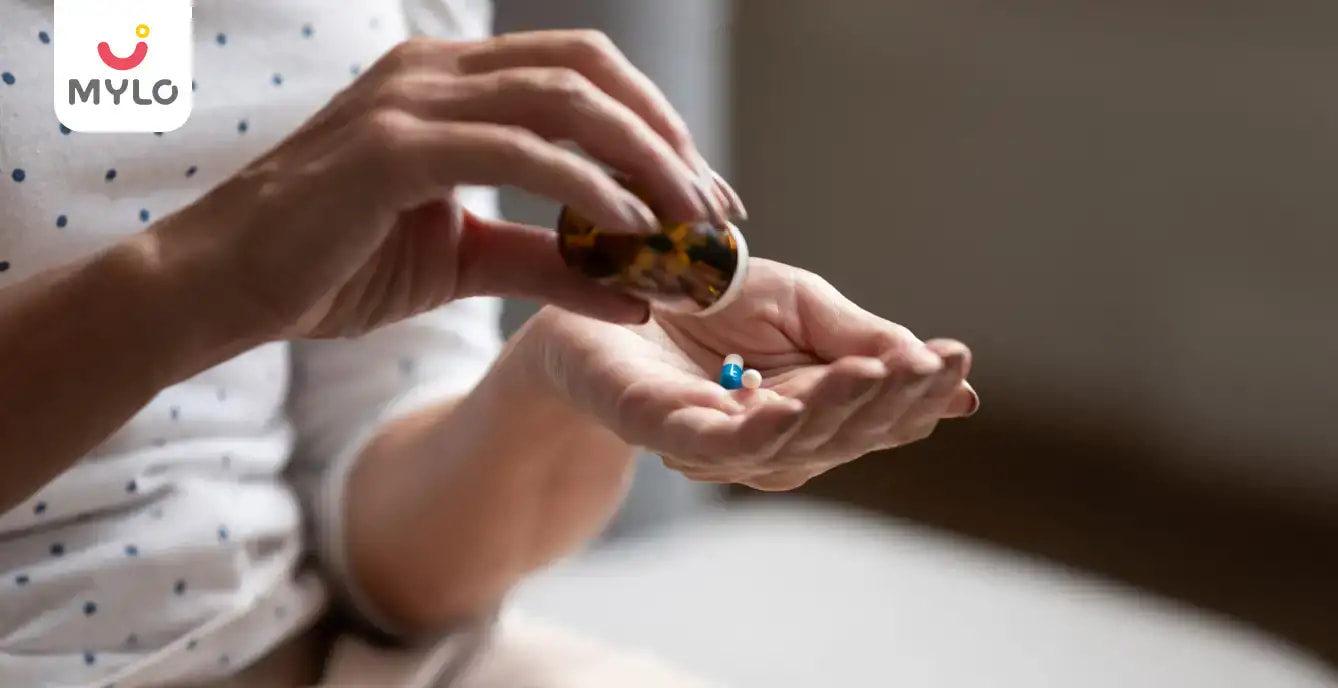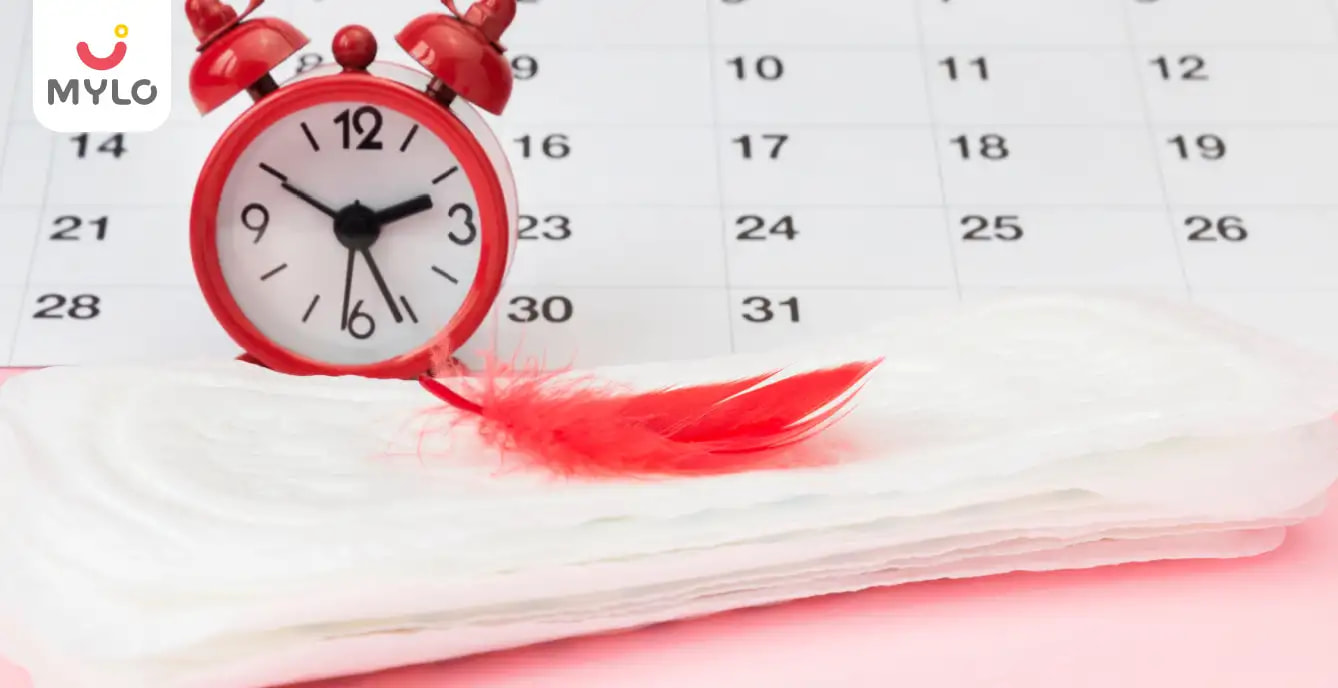Home

Health & Wellness

What is Hormonal Imbalance in Females? How to Cure it?
In this Article

Health & Wellness
What is Hormonal Imbalance in Females? How to Cure it?
Updated on 3 November 2023
Hormones greatly influence a woman's general health. Many symptoms could indicate a hormone imbalance as a result. Many conditions can be addressed to correct hormonal imbalances.
Hormonal Imbalance in Women
The body uses hormones as chemical messengers. These potent chemicals, produced by the endocrine glands, flow through the bloodstream to instruct tissues and organs. They support regulating numerous critical bodily functions, such as reproduction and metabolism.
The body either has too much or not enough of a particular hormone when you experience a hormonal imbalance. Even the most minor adjustments can significantly impact your entire body.
Hormonal Imbalance Symptoms In Females
Hormones greatly influence a woman's general health. Consequently, various indications and symptoms may point to a hormonal imbalance. The symptoms or signs may vary depending on whether the hormones function correctly.
Hormonal imbalance in women symptoms include:
- General weariness and muscle weakness
- Weight gain
- Elevated or lowered heart rate
- Soreness in the breast
- Hair thinning
- Brittle bones
- Skin rashes
- Fluctuation in blood pressure
- Enlarged clitoris
- Thirst
- Vision problem
Hormonal Problems in Females
Here are some common hormonal problems women experience:
1. Polycystic ovary syndrome
The most prevalent hormonal imbalance in women is known as polycystic ovarian syndrome (PCOS), which is characterized by irregular menstrual cycles and amenorrhea.
2. Infertility
Hormone-related conditions like PCOS can bring on infertility. The primary contributor to infertility is a hormonal imbalance.
Changes in Hormones During Pregnancy
Here are some hormonal changes women experience during pregnancy:
1. Hormone human chorionic gonadotropin (hCG)
In the mother's blood and urine, certain hormone levels are exceptionally high throughout the first trimester. Having high hCG levels makes one queasy and sick.
2. Estrogen
Compared to the rest of their lives, women produce more oestrogen during pregnancy. First-trimester estrogen levels rising may make some women nauseous. High estrogen levels are crucial for the growth of the milk duct and breast expansion during the second trimester.
3. Progesterone
Progesterone levels are exceptionally high during pregnancy. This aids in expanding the uterus from just a pear-shaped one to one that can hold a whole baby.
Female Hormonal Changes Following Marriage
Hormones may fluctuate as a result of physical contact, which may have an impact on the body. These modifications include:
- Irregular cycles
- Alterations to your breasts
- Skin radiated
Hormonal Changes During Menstrual Cycle
A woman can expect the following hormonal changes during her menstrual cycle:
- On the first day of the period, estrogen and progesterone levels are at their lowest. Follicle-stimulating hormone is produced by the pituitary gland when levels of oestrogen and progesterone drop (FSH). FSH facilitates the maturation of follicles.
- A rise in oestrogen levels triggers an increase in luteinising hormone (LH), which releases eggs from the follicles between days 12 and 14.
- The follicles secrete progesterone and oestrogen as they continue to become ready for pregnancy.
- If the eggs are not fertilized by day 28, oestrogen levels continue to decline, and the following cycle starts.
Hormonal Changes in the Breasts
Due to hormonal changes throughout puberty, the ovaries begin to produce oestrogen, which causes breast tissues to accumulate fat. The breasts enlarge due to the increased fat, which also promotes the development of the milk duct.
However, after menopause, there is relatively little oestrogen production, which results in sagging and a reduction in breast size.
Hormonal Changes After Sex
The release of chemicals like oxytocin, serotonin, and endorphins occurs after sexual activity. These hormones assist in lowering stress. During an orgasm, a lot of oxytocin is released.
How to Cure Hormonal Imbalance in Females?
Among the remedies for hormonal imbalances in women are:
1. Birth control pills or hormone therapy
These hormone-regulating drugs contain oestrogen and progesterone, which can help control menstrual cycles (and related symptoms). Rings, tablets, shots, or intrauterine devices are available as birth control methods (IUDs)
2. Anti-androgen drugs
These drugs can lessen acne issues, slow hair growth, and reduce hair loss by preventing the release of the androgen hormone.
3. Natural herbs like Shatavari
Natural herbs like Shatavari are known to promote hormonal balance in women and boost their reproductive health. Mylo 100% Natural Shatavari Powder not only promotes hormonal balance in women but also enhances libido, relieves stress and anxiety, aids healthy digestion and stimulates the immune system.
Shatavari is a wonder supplement for women as it helps boost fertility, treat menopausal symptoms and improves lactation health for new mothers.
4. Hormonal replacement therapy
These drugs treat menopause symptoms like hot flashes.
5. Letrozole with clomiphene
For better ovulation, these drugs are typically taken by women with polycystic ovarian syndrome (PCOS) or infertility.
6. Vaginal estrogen
A woman can apply a cream containing estrogen directly to the vaginal tissue to get relief from vaginal dryness. Estrogen tablets and rings are also available to reduce vaginal dryness.
7. Assisted reproductive technology
Assisted reproductive technology like in vitro fertilization can be used to treat PCOS and to get pregnant.
Conclusion
Hormones govern numerous vital bodily functions, and the symptoms that arise from a hormonal imbalance can be very diverse. It's critical to seek treatment as soon as possible for hormonal imbalance because it can lead to several issues. A crucial first step in treating a hormone imbalance early on is to speak with your doctor as soon as you detect any changes in your body or energy levels.
References
Brucker-Davis F, Thayer K, Colborn T. (2001). Significant effects of mild endogenous hormonal changes in humans: considerations for low-dose testing. NCBI

Shatavari Powder - 100 gm
Improves Lactation | Promotes Hormonal Balance | Relieves Stress & Anxiety | Clinically Tested
₹ 215

4.1
(1166)


6999 Users bought



Written by
Madhavi Gupta
Dr. Madhavi Gupta is an accomplished Ayurvedic doctor specializing in Medical content writing with an experience of over 10 years.
Read MoreGet baby's diet chart, and growth tips

Related Articles
RECENTLY PUBLISHED ARTICLES
our most recent articles

Diet & Nutrition
গর্ভাবস্থায় আলুবোখরা: উপকারিতা ও ঝুঁকি | Prunes During Pregnancy: Benefits & Risks in Bengali

Diet & Nutrition
গর্ভাবস্থায় হিং | ঝুঁকি, সুবিধা এবং অন্যান্য চিকিৎসা | Hing During Pregnancy | Risks, Benefits & Other Treatments in Bengali

Women Specific Issues
স্তনের উপর সাদা দাগ: লক্ষণ, কারণ এবং চিকিৎসা | White Spots on Nipple: Causes, Symptoms, and Treatments in Bengali

Diet & Nutrition
গর্ভাবস্থায় পোহা: উপকারিতা, ধরণ এবং রেসিপি | Poha During Pregnancy: Benefits, Types & Recipes in Bengali

Diet & Nutrition
গর্ভাবস্থায় মাছ: উপকারিতা এবং ঝুঁকি | Fish In Pregnancy: Benefits and Risks in Bengali

Diet & Nutrition
গর্ভাবস্থায় রেড ওয়াইন: পার্শ্ব প্রতিক্রিয়া এবং নির্দেশিকা | Red Wine During Pregnancy: Side Effects & Guidelines in Bengali
- ইনার থাই চ্যাফিং: কারণ, উপসর্গ এবং চিকিৎসা | Inner Thigh Chafing: Causes, Symptoms & Treatment in Bengali
- গর্ভাবস্থায় ব্রাউন রাইস: উপকারিতা ও সতর্কতা | Brown Rice During Pregnancy: Benefits & Precautions in Bengali
- Velamentous Cord Insertion - Precautions, Results & Safety
- Unlock the Secret to Flawless Skin: 7 Must-Have Qualities in a Face Serum
- Unlock the Secret to Radiant Skin: How Vitamin C Serum Can Transform Your Complexion
- Gender No Bar: 10 Reasons Why Everyone Needs a Body Lotion
- Unlock the Secret to Radiant Skin How to Choose the Perfect Body Lotion for Your Skin Type
- Top 10 Reasons to Apply a Body Lotion After Every Bath
- Communication in Toddlers: Milestones & Activities
- How to Improve Vocabulary for Toddlers?
- A Comprehensive Guide to Understanding Placenta Accreta
- Vulvovaginitis in Toddlers Causes, Symptoms and Treatment
- A Comprehensive Guide to Understanding Cerebral Palsy in Children
- Bitter Taste in Mouth During Pregnancy: Understanding the Causes and Remedies


AWARDS AND RECOGNITION

Mylo wins Forbes D2C Disruptor award

Mylo wins The Economic Times Promising Brands 2022
AS SEEN IN

- Mylo Care: Effective and science-backed personal care and wellness solutions for a joyful you.
- Mylo Baby: Science-backed, gentle and effective personal care & hygiene range for your little one.
- Mylo Community: Trusted and empathetic community of 10mn+ parents and experts.
Product Categories
baby carrier | baby soap | baby wipes | stretch marks cream | baby cream | baby shampoo | baby massage oil | baby hair oil | stretch marks oil | baby body wash | baby powder | baby lotion | diaper rash cream | newborn diapers | teether | baby kajal | baby diapers | cloth diapers |








